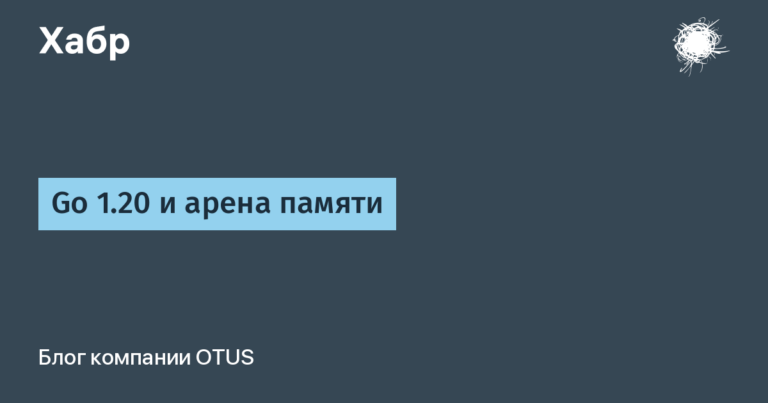Express study of corporate communications in Russia 2023
Results of a survey of 500 verified specialists who implement and maintain video communication systems and corporate instant messengers. Geography: 13 cities of Russia.
Rating of video conferencing solutions
Cloud or local server
New technologies and habits
Subjective safety
How we conduct research
Who are our experts
Rating of video conferencing solutions

Despite sanctions and import substitution policies, foreign vendors are still in demand in Russia.
31% of surveyed experts confirm that their companies use only a foreign solution for video communication, 33% – only a Russian one, 30% – both.
39% of those who use foreign solutions pay for it.

Judging by the rating, many manage to keep in working order even the systems of Cisco, which officially stopped operating in the country back in March 2022. Those who did not refuse to supply free plans are also popular – Microsoft, Zoom.

Over the past two years, with the introduction of sanctions, Russian solutions have begun to actively advance to the top rankings. Large companies and government agencies prohibit employees from using popular instant messengers for work purposes and are switching to domestic software. Interaction takes place in closed video conferencing systems and internal chats.
Video+Conference 2023Dmitry Miroshnik, Softline:
— We all see how the main Western vendors have left, and technologies are leaving with them… This creates some instability and a lot of thoughts
Small and medium-sized enterprises now have access to a choice of domestic cloud solutions, which are gradually acquiring business functionality. Russian developers have become noticeably more active, as can be seen in the graph – Yandex and MTS Link (formerly Webinar) are gaining popularity. Many domestic solutions have not even appeared in questionnaires before.
Cloud or local server

58% prefer on-premises deployment. Most likely, the reason is the current unstable situation and sanctions, when control over your data and content is necessary. This will allow you not to depend on providers and blocks from foreign IT companies.
Only 12% choose cloud service. Both indicators increased compared to last year, and there were fewer undecided people.

The table shows how the preference for local deployment increases with the number of employees in the company.
Video+Conference 2023Igor Klushin, Gazprom Neft:
— We even thought of reaching an agreement with Microsoft to organize Teams as an on-premises installation for Gazprom… But then Microsoft refused to consider this branch of product development at all and completely switched to a subscription model
New technologies and habits

The habit of working on the go is still a rare occurrence. Only 20% of specialists regularly get involved in this.
Under the sanctions, many convenient mobile applications and other tools for performing work tasks on the go have become unavailable. Especially their fully functional paid versions. Russian vendors are still actively developing full-fledged office products.
However, the number of those who have never met on a mobile device has decreased by almost 10% over 2 years. Perhaps this is a trend – we'll check in a year.

71% of surveyed specialists still have not created an archive and do not centrally store recordings of meetings and video meetings. Appointments are recorded only for those who missed them.
This creates risks of confidential information leaking to the network or to third parties. 13% do not think at all about the possibility of recording video or are not aware whether meetings are recorded at their company.
A good trend: compared to last year, there was a 5% shift towards centralized recording and storage.
Only 5% still store records in special services. However, storage is not an end in itself. A single archive is needed for systematization and searching in the knowledge base. It helps you make decisions quickly. Judging by the graph, video storage and search systems like Panopto, Kaltura, Qumu will not soon become an essential service in our country.

Google, Microsoft, Zoom and other well-known cloud vendors are now actively introducing intelligent services that make it easier for humanity to process terabytes of discussions and help make decisions faster.
Gradually, the habit of using such services will come to us, it’s up to the developers. So far, only 1% of respondents still use special services.
But already 34% (last year 23%) are separating the processing of what was discussed at the meeting into a separate function, rather than just meeting.
Video+Conference 2023Igor Klushin, Gazprom Neft:
— Each action must have an administrative trace. If the decision-making conference has some result, then it goes into the minutes
Automatic logging, which is already built into any services of Western vendors by default – both giants and startups – cannot yet be called a trend in domestic communications. Although there are already enough solutions from developers on the market.

For language models and AI assistants, 2023 turned out to be a year of explosive growth. However, these technologies have not had time to penetrate much into business processes. Only 17% of respondents use chatbots in their work.
In addition to assistant bots, which summarize and systematize information with varying quality and degree of distortion depending on the underlying algorithms, other methods of data processing can be used at meetings. Not only noise is removed – you can replace, improve, and embellish the background. Technologies for replacing the interlocutor in real time are now available.
Question from the audience:
— There should be some kind of icon, a mark: “you are now using artificial intelligence in the conference.” Are there any services so that a person understands that he is seeing a fake picture: completed, silent, and so on?Maxim Troshin, SDK Effects:
— I have not seen this within videoconferencing systems. There are systems that try to recognize fakes. Protection and understanding that this is a fake is one of those services that will really be neededDmitry Odintsov, Trukonf:
– And against him there will be a service that is against this service. AON-AntiAON – we've all been through this before))
Subjective safety

45% of respondents are worried about possible access by attackers to an unlocked camera and are already taking measures.

64% of our experts are confident that their systems have not been hacked. 12% indicate that outside interference has taken place.
Video+Conference 2023Mikhail Moiseev, Solar:
— 33% of leaks of confidential information occur through instant messengers. When you allow employees to work in instant messengers, you are essentially authorizing a wide range of possible violations.
In addition to sending text and leaking files, employees record screencasts and take screenshots, including during video calls. There are exotic ways – saving critical data in videoconferencing in the form of drafts and then opening it on a personal device. Often, former employees are not immediately removed from work chats, which also leads to leaks.
However, messengers are an effective and convenient working tool. To prevent leaks and protect data, there are DLP (Data Leak Prevention) systems that control network traffic, printing, copying to removable media, screen recording, sound recording and many more items. In the future, there may even be protection against photographing work screens with a personal smartphone.
How we conduct research
We have been holding conferences and training seminars for several years now. They are designed for IT specialists who implement and maintain video communication systems and corporate instant messengers. We also invite AV engineers and heads of IT departments. Geography: Russia
At first we collected data for internal analytics, then we decided to share it with everyone who is interested in the video conferencing and communications industry. We can include in the questionnaire current questions from partners and the media in the new season.
Seminar topic: video conferencing, software and equipment for meeting rooms, equipping workplaces, organizing remote work and distance learning.
In 2023, from March to November, we visited 13 cities and received feedback from almost 500 specialists.
Voronezh
Ekaterinburg
Kazan
Krasnodar
Moscow
Murmansk
Nizhny Novgorod
Novosibirsk
Permian
Saint Petersburg
Syktyvkar
Ufa
Chelyabinsk
Who are our experts
The participants in the study are managers and specialists of IT departments who deal with corporate communications. Everyone who transfers employees to remote mode, implements and maintains video conferencing systems, equips meeting spaces, conducts webinars and online events, and teaches remotely.

By area of activity, ⅔ are representatives of the IT industry, telecoms, government agencies and industry. Also traditionally, the topic of videoconferencing is of interest in the education system.

12% work on IT issues in large corporations with more than 10,000 employees.
23% are large businesses or government agencies employing up to 10,000 people.
19% of respondents work in companies with 300 to 1000 employees.
46% are small and medium-sized businesses with up to 300 employees.




